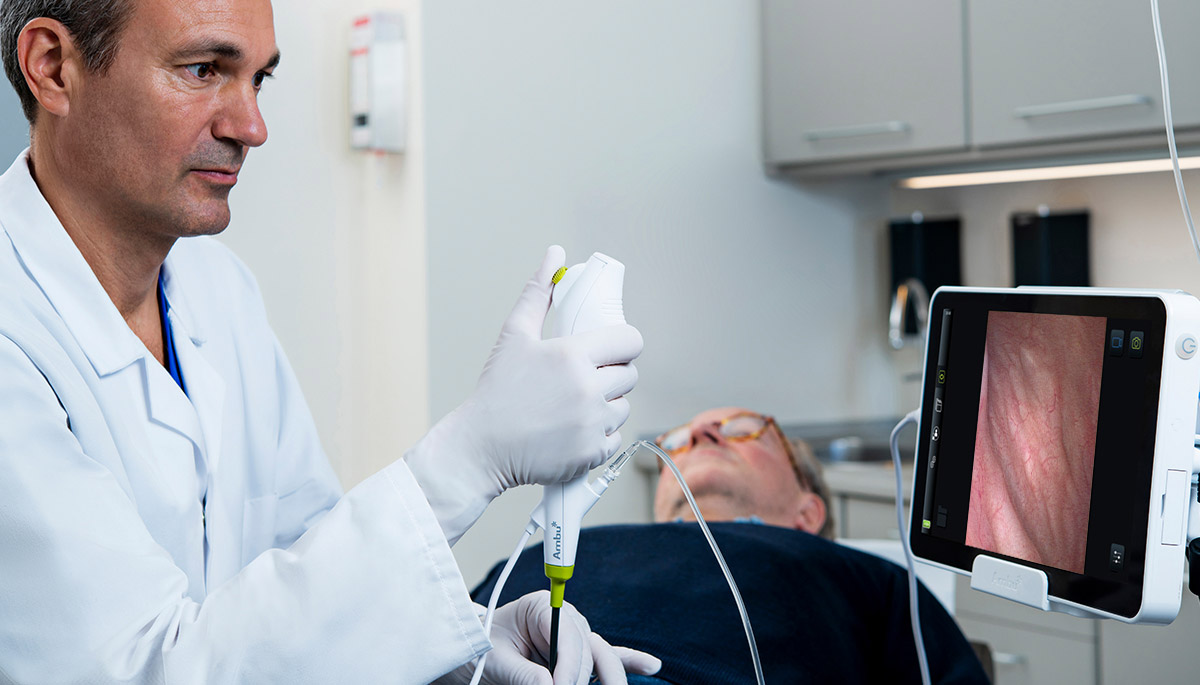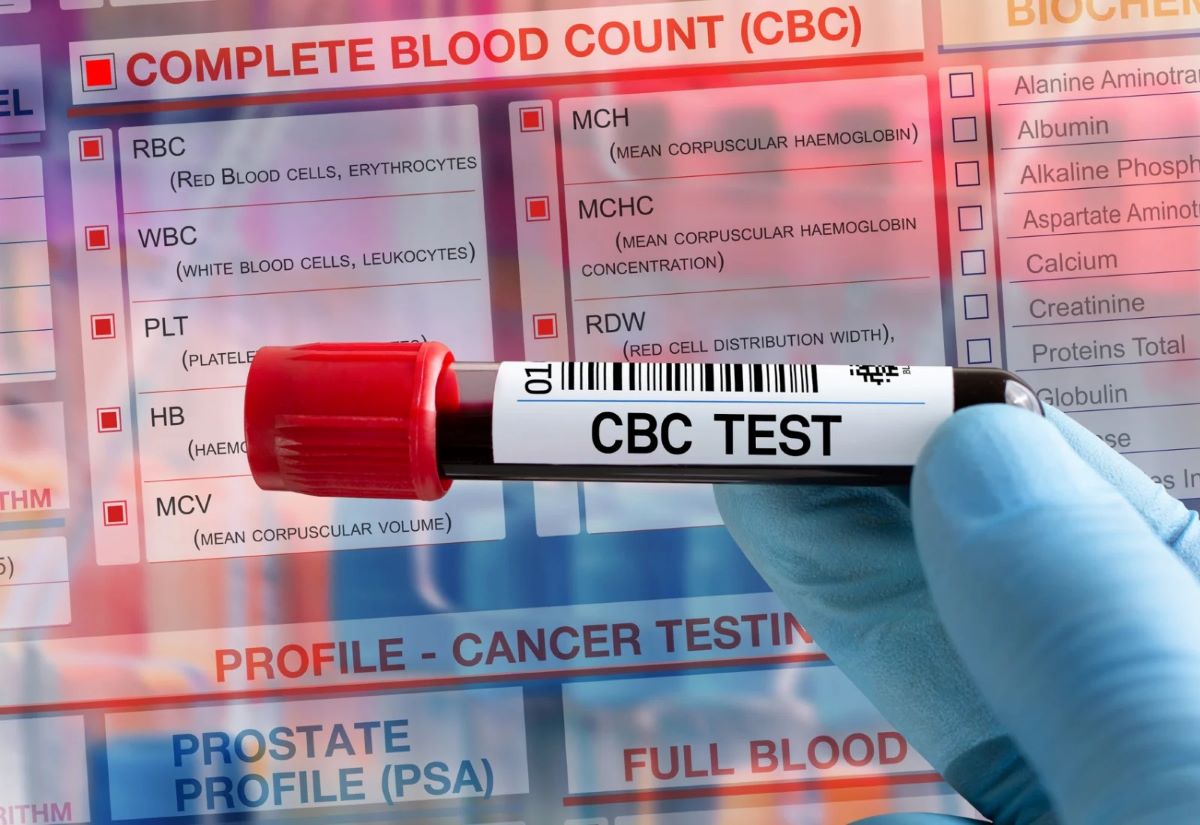

Finance
How Much Does OB/GYN Cost Without Insurance
Published: November 23, 2023
Explore the cost of OB/GYN services without insurance. Discover affordable financing options for your reproductive health needs.
(Many of the links in this article redirect to a specific reviewed product. Your purchase of these products through affiliate links helps to generate commission for LiveWell, at no extra cost. Learn more)
Table of Contents
- Introduction
- Factors Affecting the Cost of OB/GYN Services Without Insurance
- Types of OB/GYN Services and their Average Costs
- Finding Affordable OB/GYN Care Without Insurance
- Government Programs and Resources for Uninsured Individuals Seeking OB/GYN Care
- Financial Assistance Options for OB/GYN Services Without Insurance
- Conclusion
Introduction
When it comes to women’s health, regular visits to an OB/GYN (Obstetrician/Gynecologist) are crucial for preventive care, reproductive health, and maintaining overall well-being. However, not everyone has access to health insurance coverage, leaving them wondering about the costs associated with OB/GYN services. In this article, we will explore how much OB/GYN services typically cost without insurance and provide guidance on finding affordable options.
Without insurance, the cost of OB/GYN services can vary significantly depending on various factors such as geographical location, the complexity of the procedure or examination, and the specific services required. It’s important to note that these costs can add up quickly, making it essential for individuals without insurance to have a clear understanding of their financial obligations before seeking out medical care.
Fortunately, there are ways to manage the costs of OB/GYN services without insurance. This article will provide insights into the different types of services offered by OB/GYNs and their average costs. Additionally, we will discuss various resources, government programs, and financial assistance options available to uninsured individuals seeking affordable OB/GYN care. By understanding these options, individuals can make informed decisions about their healthcare while managing their financial responsibilities effectively.
It’s important to prioritize your health and well-being. Regular visits to an OB/GYN can help you maintain good reproductive health, monitor existing conditions, and detect potential problems early on. Understanding the costs of OB/GYN services without insurance allows you to plan ahead and explore alternative options for affordable care. Let’s dive into the various factors that can affect the cost of OB/GYN services without insurance and find out how to access affordable healthcare in an increasingly complex healthcare system.
Factors Affecting the Cost of OB/GYN Services Without Insurance
Several factors come into play when determining the cost of OB/GYN services for individuals without insurance. Understanding these factors can help you estimate the potential expenses and plan accordingly. Here are some key factors that can affect the cost of OB/GYN services:
- Geographical Location: The cost of healthcare services can vary significantly depending on your location. Urban areas tend to have higher healthcare costs compared to rural regions. Factors such as the cost of living, availability of medical professionals, and local market dynamics impact the overall prices.
- Type of Service: Different OB/GYN services have varying costs. Routine check-ups, prenatal care, birth control consultations, fertility treatments, and surgical procedures all come with different price tags. The complexity and time required for each service can contribute to the overall expenses.
- Diagnostic Tests and Imaging: OB/GYN services often involve diagnostic tests, such as ultrasounds, Pap smears, and mammograms. These tests add to the overall cost of the visit. The frequency and type of tests required may vary based on individual circumstances and medical histories.
- Specialized Care: If you require specialized care for a specific condition, such as fertility treatments or high-risk pregnancy management, the costs may be higher. Specialized consultation and treatments typically involve additional expertise and resources, which can increase the expenses.
- Additional Services: OB/GYN services often include additional services, such as counseling, contraception prescriptions, and vaccinations. These services can impact the overall cost of your visit.
It is important to note that the costs can vary significantly between different healthcare providers. Private practices, clinics, and hospital-based OB/GYN services may have different pricing structures and fee schedules. It is advisable to research and compare the prices of different providers in your area to make informed decisions about your healthcare.
While these factors can give you a general idea of the cost of OB/GYN services without insurance, it’s crucial to remember that these costs are not fixed. Negotiating with healthcare providers and exploring financial assistance options can help alleviate the financial burden.
Now that we understand what factors influence the cost of OB/GYN services without insurance, let’s delve into the different types of OB/GYN services and their average costs.
Types of OB/GYN Services and their Average Costs
OB/GYN services encompass a wide range of healthcare needs for women, including routine check-ups, prenatal care, family planning, and specialized treatments. Understanding the different types of services and their average costs can help you plan for potential expenses. Here are some common OB/GYN services and their average costs:
- Annual Well-Woman Exam: This routine preventive care visit typically includes a physical examination, breast exam, pelvic exam, and a Pap smear. The cost of an annual well-woman exam without insurance can range from $100 to $250, depending on the location and additional tests performed.
- Prenatal Care: Prenatal care is essential for ensuring a healthy pregnancy. It includes regular check-ups, blood tests, ultrasounds, and other diagnostic procedures. The cost of prenatal care without insurance can vary widely, ranging from $2,000 to $10,000 throughout the duration of the pregnancy. The total cost depends on factors such as the number of visits, tests required, and any complications that may arise.
- Birth Control Consultation: OB/GYNs provide various options for birth control, including pills, patches, injections, and intrauterine devices (IUDs). The cost of a birth control consultation without insurance can range from $50 to $200, depending on the specific method chosen.
- Fertility Treatments: For individuals struggling with infertility, fertility treatments such as in vitro fertilization (IVF) may be recommended. The cost of fertility treatments without insurance can be substantial, ranging from $10,000 to $15,000 or more per cycle. Multiple cycles may be required for successful conception.
- Surgical Procedures: OB/GYNs may perform various surgical procedures, including hysterectomy, ovarian cyst removal, and tubal ligation. The cost of surgical procedures without insurance can range from $5,000 to $20,000 or more, depending on the complexity of the procedure and the facility where it is performed.
These are just a few examples of common OB/GYN services and their average costs. It’s important to keep in mind that these costs can vary depending on factors such as geographical location, healthcare provider, and individual circumstances. Discussing the estimated costs with your OB/GYN and exploring different providers can help you make informed decisions about your healthcare.
While the costs of these services can be significant without insurance, there are ways to find affordable OB/GYN care. In the next section, we will discuss strategies for accessing affordable OB/GYN services without insurance.
Finding Affordable OB/GYN Care Without Insurance
Obtaining affordable OB/GYN care without insurance may seem challenging, but there are options available to help manage the costs. Here are some strategies to consider when seeking affordable OB/GYN care:
- Research and Compare Providers: Look for OB/GYN clinics and healthcare providers in your area. Compare their prices, services, and patient reviews to find an option that aligns with your budget and healthcare needs.
- Community Health Centers: Community health centers provide comprehensive healthcare services to individuals, regardless of their ability to pay. These centers often offer reduced fees based on income or have sliding-scale payment options.
- Teaching Hospitals: Teaching hospitals often have clinics that offer healthcare services at reduced rates. Residents, under the supervision of experienced physicians, provide care to patients. While the cost may be lower, it’s important to consider the potential waiting times and the involvement of trainees in your care.
- Free or Low-Cost Clinics: Some communities have free or low-cost clinics that provide OB/GYN services to uninsured individuals. These clinics may have income-based eligibility criteria or operate on a first-come, first-served basis.
- Healthcare Discount Programs: Some organizations offer healthcare discount programs that provide reduced rates for medical services, including OB/GYN care. These programs typically require a membership or an annual fee, but they can help lower the costs of essential healthcare services.
- Negotiate and Set Up Payment Plans: Discussing your financial situation with the healthcare provider can sometimes lead to negotiated fees or payment plans. Providers may be willing to work with uninsured patients to establish affordable payment arrangements.
Remember, it’s essential to communicate openly with your healthcare provider about your financial situation. They may have additional resources or information about financial assistance programs specific to their practice or facility.
In addition to these strategies, it’s important to explore government programs and resources that can provide assistance to uninsured individuals seeking OB/GYN care. These programs can help alleviate the financial burden and ensure you have access to necessary healthcare services. The next section will delve into the various government programs and resources available for uninsured individuals seeking OB/GYN care.
Government Programs and Resources for Uninsured Individuals Seeking OB/GYN Care
If you are uninsured and in need of OB/GYN care, there are government programs and resources available to help you access the necessary services. These programs aim to support individuals who do not have health insurance coverage. Here are some government programs and resources to consider:
- Medicaid: Medicaid is a joint federal and state program that provides health coverage for low-income individuals and families. Eligibility requirements vary by state, but Medicaid generally covers OB/GYN services, including prenatal care, childbirth, and postpartum care. To determine your eligibility and apply for Medicaid, visit your state’s Medicaid website or contact your local Medicaid office.
- State Children’s Health Insurance Program (CHIP): CHIP provides healthcare coverage to uninsured children and teens up to the age of 19 from low-income households. Depending on the state, CHIP may extend coverage to pregnant women as well. Visit the website of your state’s CHIP program or contact your local Medicaid office to learn more about eligibility and enrollment.
- Family Planning Services: The Title X Family Planning Program offers comprehensive family planning and reproductive health services to low-income individuals and families. These services may include contraception, preconception counseling, STD testing, and more. Visit your local health department or Planned Parenthood clinic to inquire about the availability of family planning services in your area.
- Community Health Centers: Federally-funded community health centers provide affordable healthcare services on a sliding fee scale based on income. They offer a range of services, including OB/GYN care, family planning, prenatal care, and preventive screenings. To find a community health center near you, visit the Health Resources and Services Administration (HRSA) website.
- Local Health Departments: Local health departments often provide essential healthcare services to uninsured individuals, including reproductive health services. They may offer free or low-cost OB/GYN care, family planning resources, and immunizations. Contact your local health department to inquire about the available services and eligibility requirements.
It’s important to note that eligibility criteria and available services may vary by state and program. Additionally, these government programs and resources may have limited capacity, so early engagement is advised to secure the necessary appointments and services.
Exploring these government programs and resources can help ensure that uninsured individuals have access to essential OB/GYN care. However, it’s crucial to be proactive in researching and understanding the specific requirements and services offered in your area.
While government programs provide valuable support, individuals without insurance can also explore financial assistance options offered by healthcare providers and non-profit organizations. The next section will explore some of these options for obtaining financial assistance for OB/GYN services without insurance.
Financial Assistance Options for OB/GYN Services Without Insurance
If you don’t have insurance and need assistance with the costs of OB/GYN services, there are various financial assistance options available. These options can help reduce the financial burden and ensure you receive the necessary care. Here are some avenues to explore for financial assistance:
- Sliding Fee Scale: Many healthcare providers, including OB/GYN clinics, offer a sliding fee scale based on income. This means that the cost of services is adjusted according to your ability to pay. Inquire about this option when scheduling your appointment to determine if you qualify for reduced fees.
- Financial Assistance Programs: Some hospitals and healthcare facilities offer financial assistance programs to individuals who are unable to pay for medical services. These programs may cover a portion or the entire cost of care, and eligibility is typically based on income and financial need. Contact the billing or financial assistance department of the healthcare provider to inquire about the availability of such programs.
- Nonprofit Organizations: There are nonprofit organizations that provide financial assistance and resources to individuals without insurance. These organizations may offer grants or scholarships for healthcare services or connect you to resources in your community that can provide financial aid. Conduct research to identify nonprofit organizations that specialize in providing assistance for medical expenses and reach out to them for support.
- Patient Assistance Programs: Some pharmaceutical companies have patient assistance programs that provide medication at reduced or no cost for individuals who meet specific criteria. If your OB/GYN prescribes medication, inquire with the manufacturer about potential assistance programs. These programs can help alleviate the cost of medications associated with OB/GYN care.
- Charitable Care Organizations: Certain charitable care organizations offer free or low-cost healthcare services for uninsured individuals. These organizations often work in collaboration with healthcare providers and may have specific clinics or events dedicated to providing OB/GYN care. Research local charitable care organizations in your area to explore available resources.
Exploring these financial assistance options can make OB/GYN services more accessible and affordable. It’s important to be proactive in discussing your financial situation with healthcare providers and exploring all available resources. Remember, healthcare providers and organizations are often compassionate and willing to work with uninsured individuals to find suitable solutions.
Before pursuing any financial assistance, it’s advisable to gather and organize your financial information. This includes proof of income, taxation records, and any documentation that supports your need for financial assistance. Having these documents readily available can streamline the application process and increase your chances of receiving the support you need.
By leveraging these financial assistance options, uninsured individuals can navigate the costs of OB/GYN services and receive necessary care without breaking the bank. Remember, prioritizing your health is essential, and exploring these avenues will help ensure you can access the care you need.
Conclusion
Accessing affordable OB/GYN care without insurance may initially seem challenging, but with the right resources and knowledge, it is possible to manage the costs effectively. By understanding the factors that affect the cost of OB/GYN services, individuals can plan for potential expenses and explore options that align with their budget.
Exploring government programs such as Medicaid, CHIP, and community health centers can provide uninsured individuals with access to affordable OB/GYN care. Additionally, researching and comparing healthcare providers, as well as considering financial assistance programs and nonprofit organizations, can further alleviate the financial burden.
It is crucial to communicate openly with healthcare providers about your financial situation. Many providers offer sliding fee scales, payment plans, and financial assistance programs to uninsured patients. By actively seeking out these offerings and discussing your options, you can find a solution that meets your needs.
In conclusion, although lacking health insurance may pose challenges, there are avenues to pursue affordable OB/GYN care. By utilizing government programs, financial assistance options, and resources in the community, uninsured individuals can access the necessary healthcare services they need for their reproductive health and overall wellbeing. Prioritizing your health should never be compromised, and by taking the appropriate steps, you can receive the care you deserve without breaking the bank.














